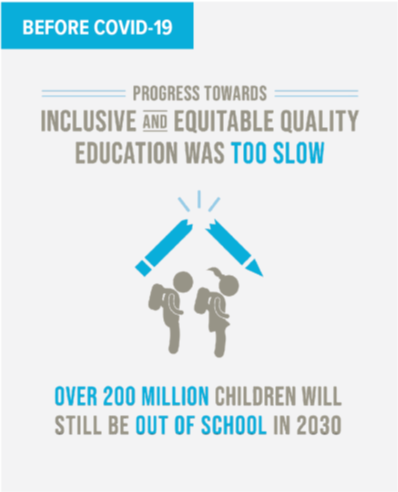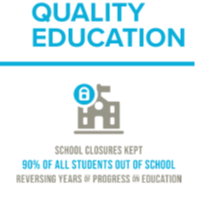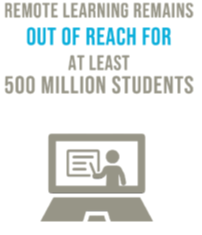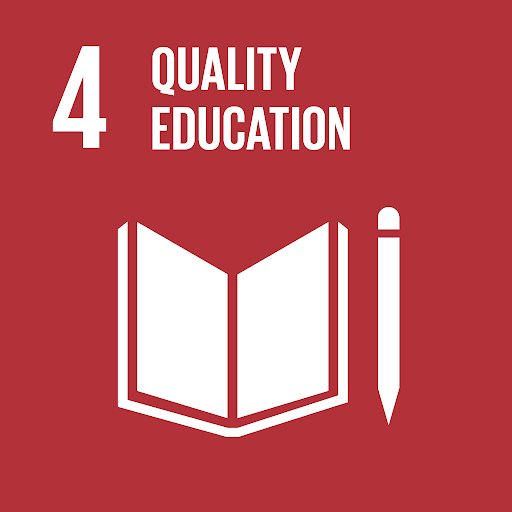Globally, there are only 92 literate women for every 100 men who are literate. Before the pandemic, less than 70% of adults in low-income countries were projected to have basic literacy skills by 2030.
Literacy and Proficiency Before the Pandemic
 Even before the pandemic, formidable obstacles inhibited fulfilling the promise of education as a basic human right. Globally, more than 250 million children were out of school and only six in every ten students were projected to finish secondary school in 2030.
Even before the pandemic, formidable obstacles inhibited fulfilling the promise of education as a basic human right. Globally, more than 250 million children were out of school and only six in every ten students were projected to finish secondary school in 2030. Bringing children into the classroom, however, is not enough. Enrollment and completion of
 studies are important objectives, but SDG 4 also seeks to ensure that students achieve a
studies are important objectives, but SDG 4 also seeks to ensure that students achieve a basic standard of learning while in school. According to a 2017 report, over half of primary school age students worldwide basic reading skills.
Recent estimates show that over one hundred million youth lack basic literacy skills. In low-income countries, one in every three young people cannot read. For adults, the literacy rate is 86%.
The Exposed Disparities
The global health crisis is exacerbating pre-existing disparities in our education systems. According to a UN report that surveyed twenty-one European countries, Grade 4 students from lower socio-economic backgrounds were half as likely to have access to the internet in comparison with their classmates. In seven low-income countries, less than 1 in 10 people living in the poorest households have electricity. Girls' access to education is especially at risk during the pandemic. The work required to run households and look after family members can prevent them from sufficient learning opportunities. Children with disabilities are often overlooked when developing strategies for distance learning, which further exacerbates their marginalization. Lastly, refugee and forcibly displaced children are further deprived of access to services offered through schools, such as meals and psychosocial support.
Girls' access to education is especially at risk during the pandemic. The work required to run households and look after family members can prevent them from sufficient learning opportunities. Children with disabilities are often overlooked when developing strategies for distance learning, which further exacerbates their marginalization. Lastly, refugee and forcibly displaced children are further deprived of access to services offered through schools, such as meals and psychosocial support. Building Resilient Education Systems for Sustainable Development
To prevent this health-turned-learning crisis from becoming a generational catastrophe, we must take urgent action at all levels. From television to radio take-home packages, distance learning solutions were developed around the world in partnership with UNESCO’s Global Education Coalition. National governments play a paramount role in ensuring that students can access education and the lifetime opportunities that it accrues. This historic disruption to education must be met with sustainable solutions that prioritize equity and inclusion.Ready to Take Action?
We’re taking the fight to Congress. Email This email address is being protected from spambots. You need JavaScript enabled to view it. for more information on how you can join us on Capitol Hill and beyond.LEARN MORE









